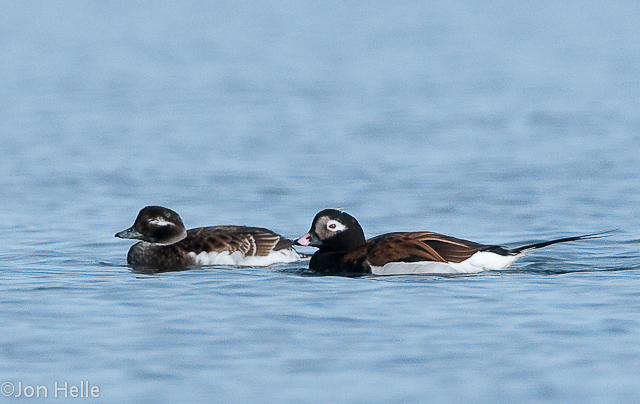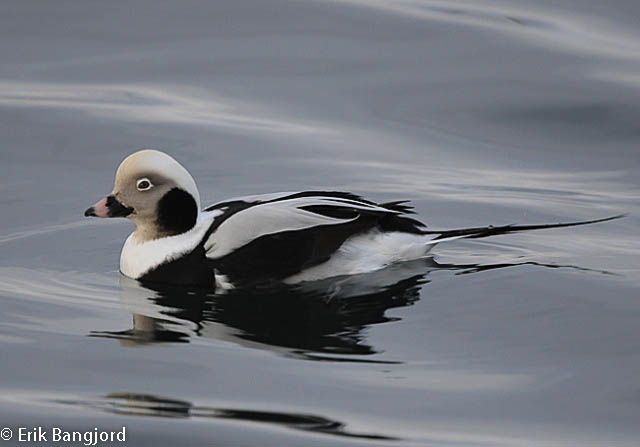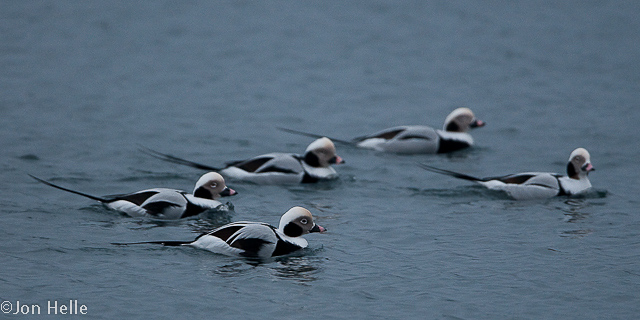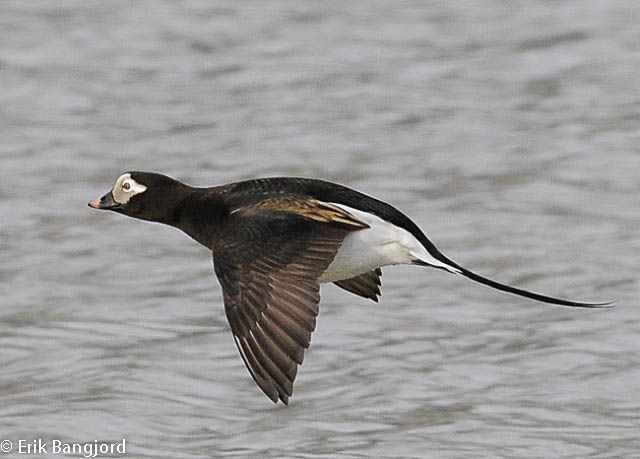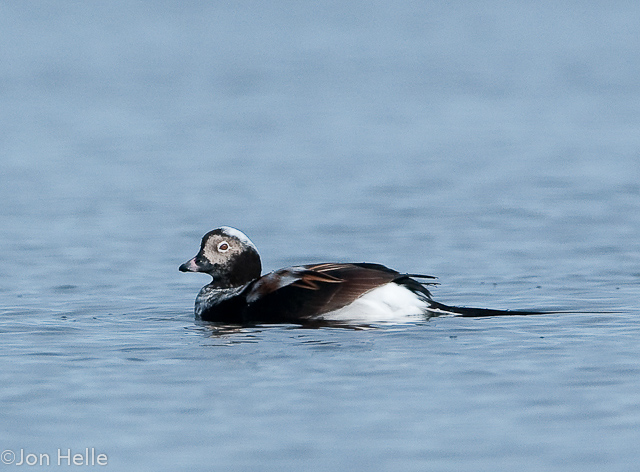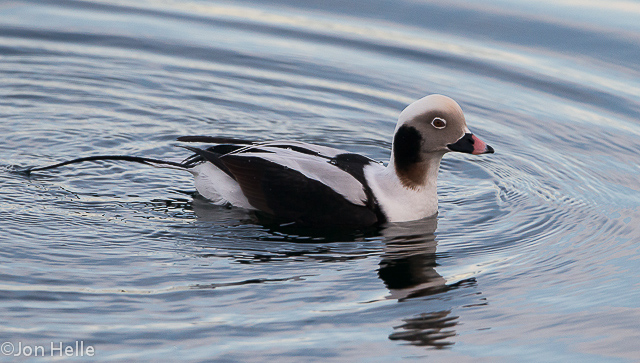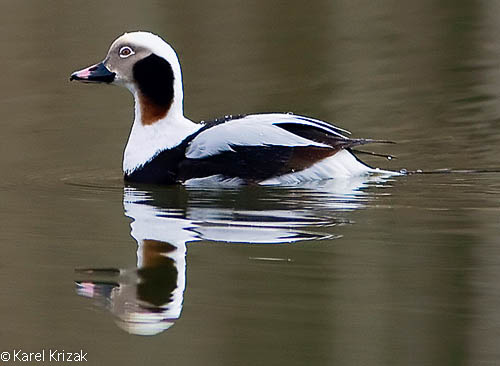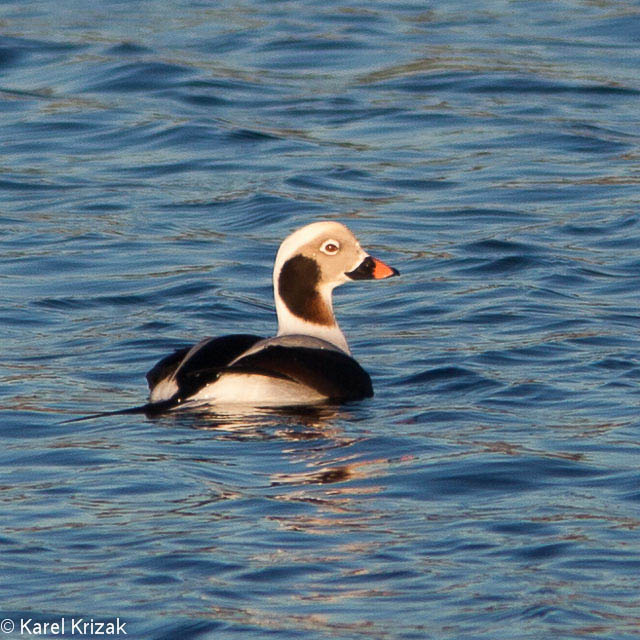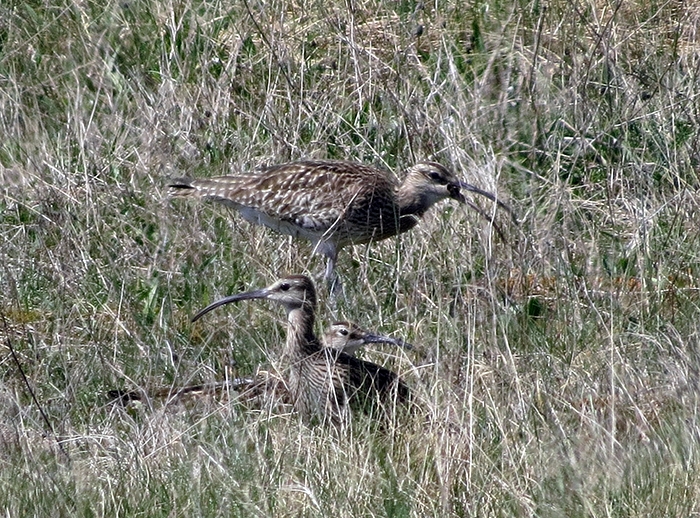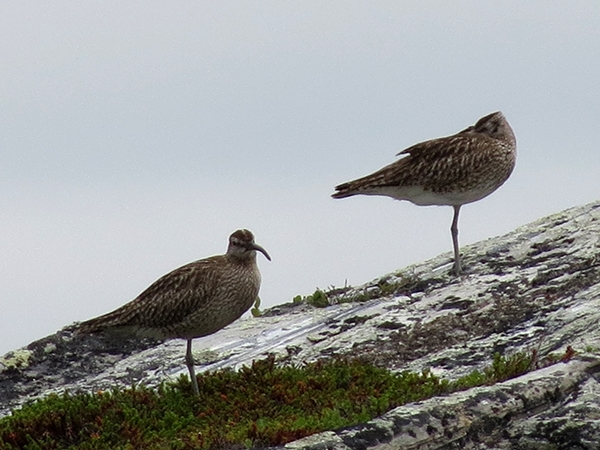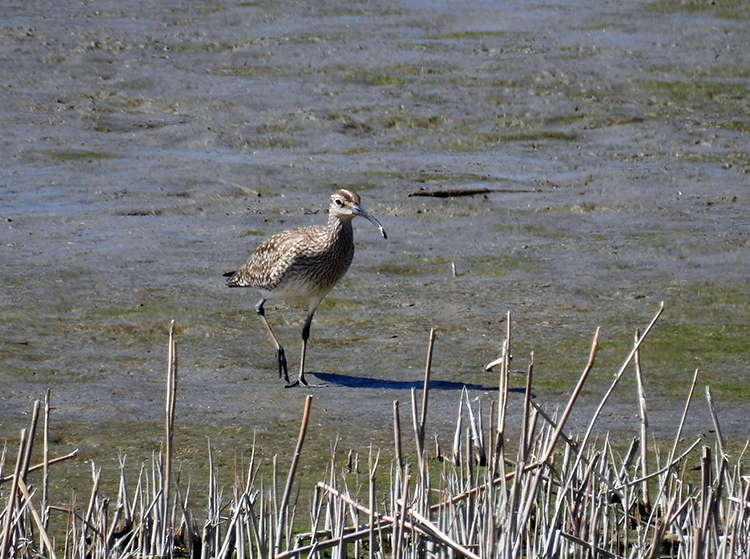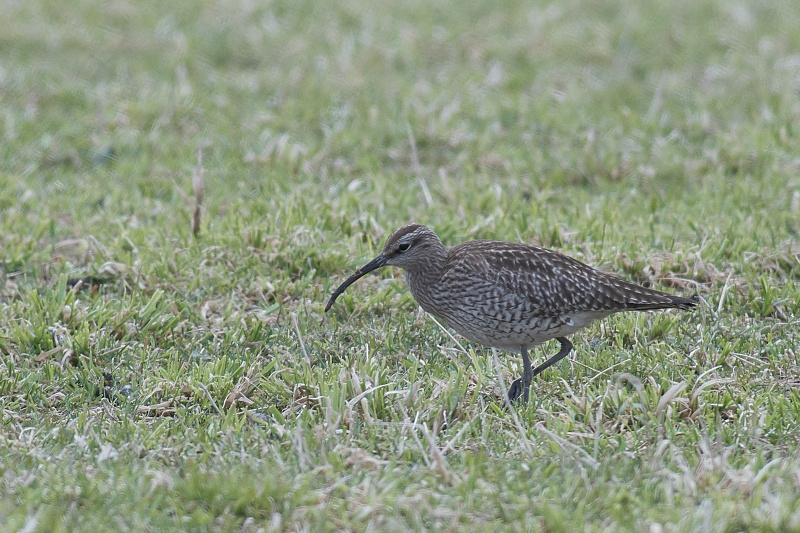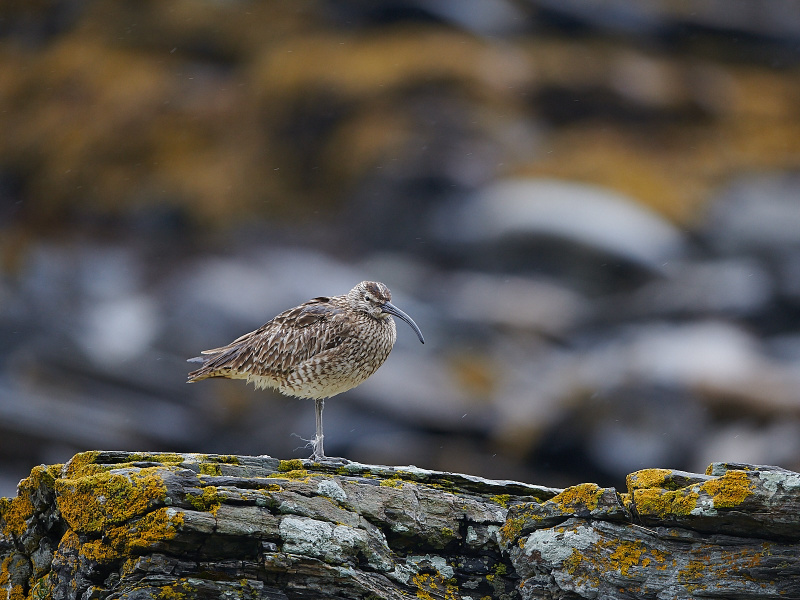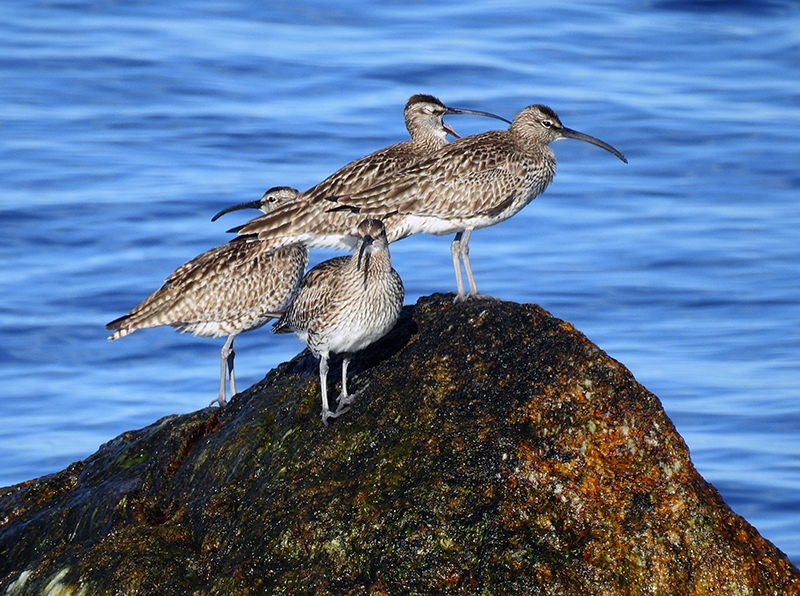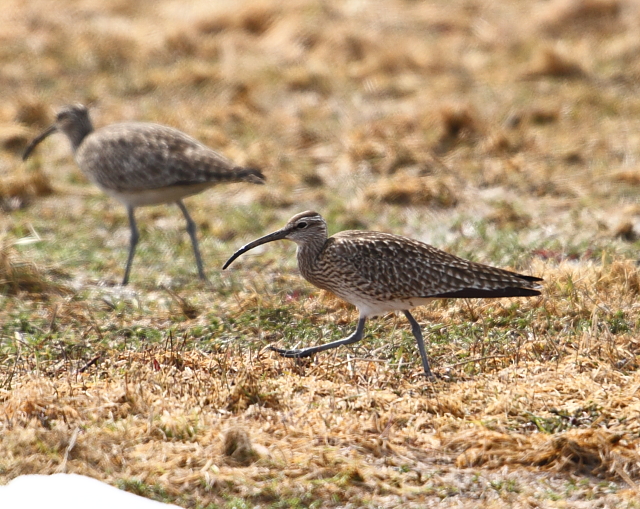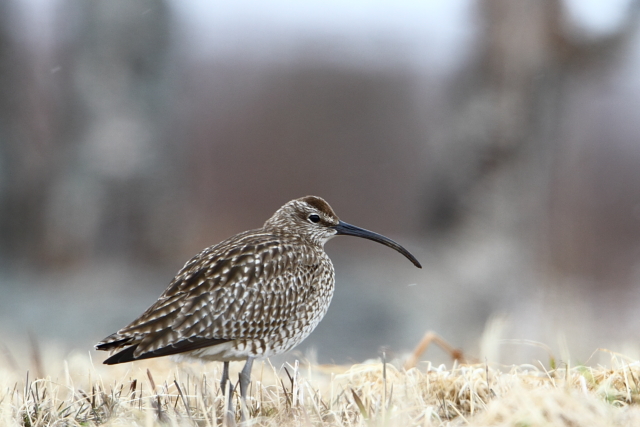Long-tailed Duck (Clangula hyemalis)
Whimbrel (Numenius phaeopus)
A small, elegant diving duck with highly variable looks depending on sex and time of year. Several moults with transitional plumages. Males with long, pointed tail and pink banded bill in most plumages. Females with grey bill. In all plumages note: small head, steep forehead and short bill with high base. Wings always all dark (also underside). Only diving duck with dark wings and light body. Flies with wings hardly raised above horizontal plane on upstroke.
Sound:Very vocal and distinct. Male: a pleasant resonant melodic "ahh-aaooee" in a yodeling, breaking triad. Starting with an accented first note (ahh), then gliding from first through second and third note (-aaoooeee). Far carrying. Female: calls often, but less musical and distinct than male.
Male song:
Distribution:
Wikipedia: map (se also Xeno-canto below)
Ecology:Birdlife ecology
Links:
Observation.org Latest observations
Image search Flickr NB! May give other species
CCSounds:Recorded by Ian Cruickshank,http://www.xeno-canto.org ,CC license
Notably smaller than Curlew. Bill is shorter and curves more closer to the tip. Markings on head much more prominent than in Curlew, with double dark lateral crown-stripes (light stripe on top of crown) and dark eye-stripe. Note that young Curlews have noticeably shorter bill than adults! Gives an overall darker impression than Curlew, especially underwing and flanks.
Sound:Song starts similar to Curlew with long wailing notes "kluuueee", which then accelerates to a continuous, vibrating single note. Lacks the cyclic phrase ending of Curlew.
Song:
Distribution:
Wikipedia: map (se also Xeno-canto below)
Ecology:Birdlife ecology
Links:
Observation.org Latest observations
Image search Flickr NB! May give other species
CC
 English
English Albanian
Albanian
 Armenian
Armenian
 Bulgarian
Bulgarian
 Catalan
Catalan
 Croatian
Croatian
 Czech
Czech
 Danish
Danish
 Dutch
Dutch
 Finnish
Finnish
 French
French
 Georgian
Georgian
 German
German
 Greek
Greek
 Hungarian
Hungarian
 Italian
Italian
 Latvian
Latvian
 Lithuanian
Lithuanian
 Macedonian
Macedonian
 Norwegian
Norwegian
 Polish
Polish
 Portuguese
Portuguese
 Romanian
Romanian
 Russian
Russian
 Sami : Lule sami
Sami : Lule sami
 Sami : North sami
Sami : North sami
 Sami : South sami
Sami : South sami
 Scientific names
Scientific names
 Serbian
Serbian
 Spanish
Spanish
 Swedish
Swedish
 Ukrainian
Ukrainian


